Why are thousands of Germans protesting and who are Pegida?
- Published
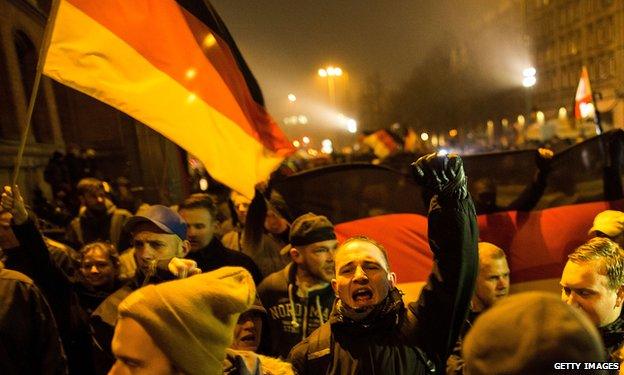
Thousands marched for and against Pegida in several cities across Germany on Monday
Thousands of people have taken part in rallies across Germany in support of the anti-Islam movement, Pegida.
German politicians appealed for the protest to be called off in Dresden, the movement's stronghold, after last week's terror attacks in France.
Instead, police said that a record 25,000 people took part in a silent march that was dedicated to the victims of the Paris shootings.
Across Germany tens of thousands of anti-Pegida supporters also turned out.
But where did Pegida (Patriotic Europeans against the Islamisation of the West) come from and why is the group growing so fast?
What is Pegida?
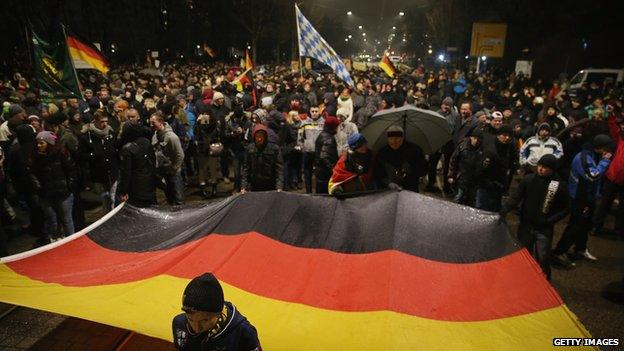
Monday's pro-Pegida march in Dresden was the largest yet, attracting 18,000 people
Pegida is a German political movement based in Dresden in the east of the country.
It claims to be anti-Islamist and against what it sees as the growing influence of Islam in Europe.
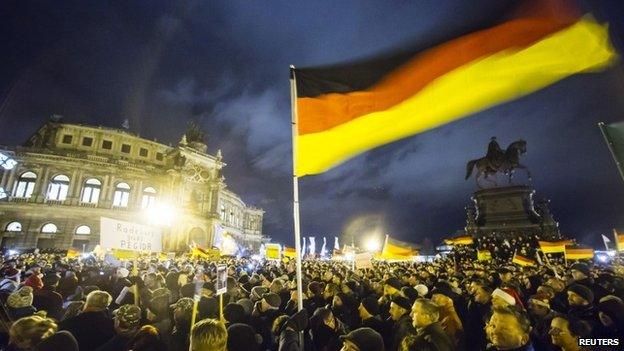
Support for Pegida across Germany has swelled from hundreds into thousands in recent months
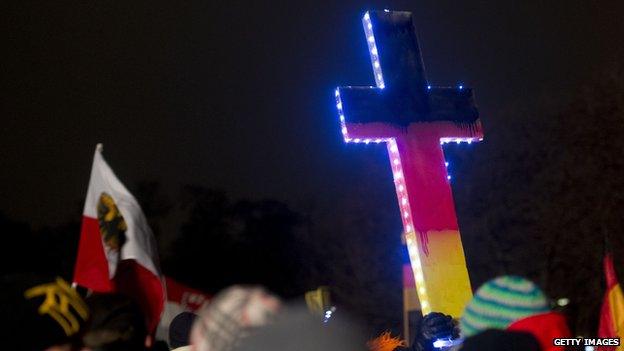
Pegida opposes high levels of immigration and what it sees as the growing influence of Islam
The group also says it is not a racist organisation but that it is concerned by levels of immigration in Germany, which are at a 20-year high.
Pegida's online proposal, external claims it is "against radicalism" and "preachers of hate" and calls for stricter enforcement of Germany's current laws on asylum and deportation.
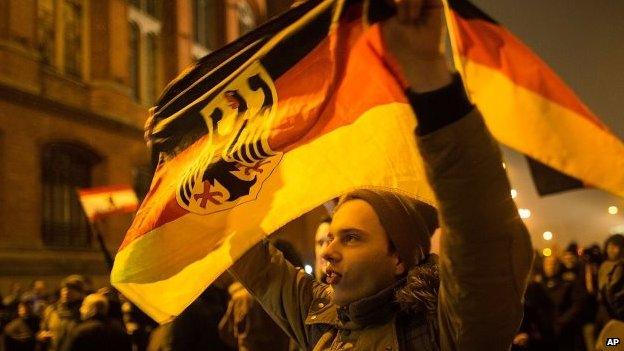
Pegida supporters held their first march in Berlin on Monday but were outnumbered
Pegida has been holding regular marches in Dresden for nearly three months.
Demonstrators at the largest pro-Pegida rally to-date on 5 January were heard chanting "we are the people" with one man telling the BBC "we don't want Mosques in Dresden."
Lights out
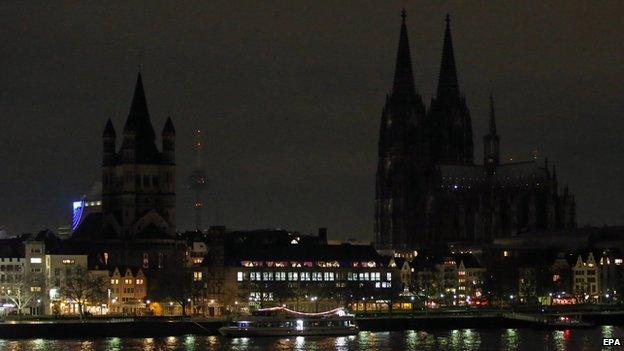
The lights of Cologne Cathedral were switched off to make a statement against Pegida
Counter demonstrations have sprung up and the group has been condemned by senior German politicians.
German chancellor Angela Merkel has criticised the protests, calling them xenophobic and racist.
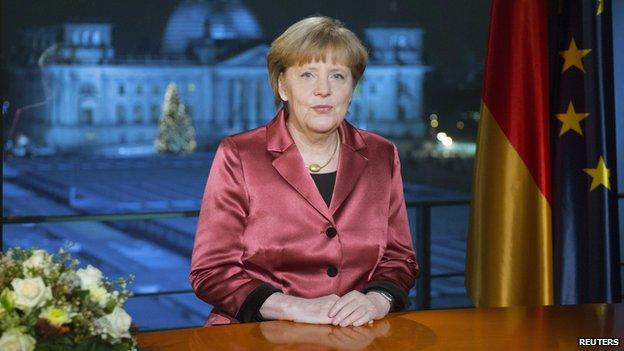
Angela Merkel discussed Pegida in her New Year address

Former Chancellor Helmut Schmidt, actress Karoline Herfurth and footballer Oliver Bierhoff are among those opposing Pegida
In her New Year address on German television she told the public: "Don't follow these people."
She said the people behind Pegida have "coldness, prejudice and hatred in their hearts".
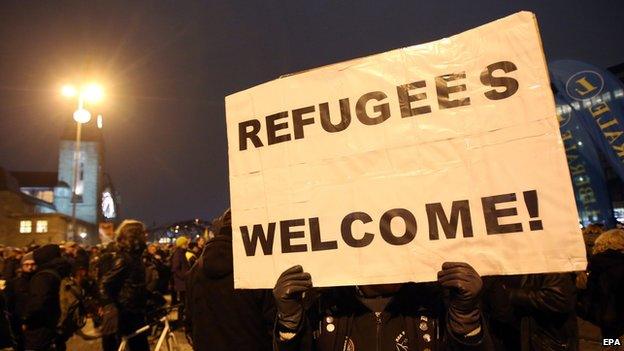
22,000 anti-Pegida demonstrators marched in Stuttgart, Muenster and Hamburg (pictured), according to DPS news agency.
In Cologne, the authorities switched the lights out at the city's cathedral as a way of warning Pegida supporters that they were supporting "extremists".
"We don't think of it as a protest, but we would like to make the many conservative Christians [who support Pegida] think about what they are doing," Dean Norbert Feldhoff, told the BBC.
Only about 250 Pegida supporters showed up in Cologne, compared to thousands of counter-demonstrators.
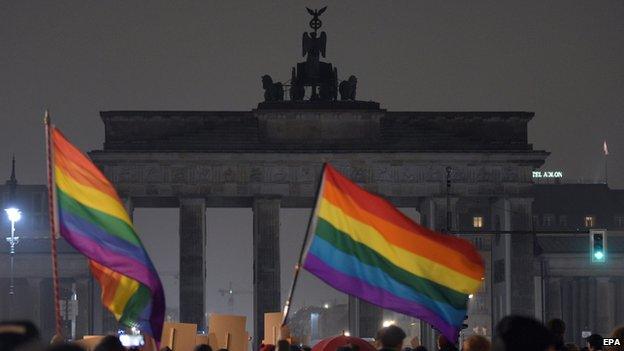
Lighting at the Brandenburg Gate in Berlin was also switched off during anti-Pegida marches
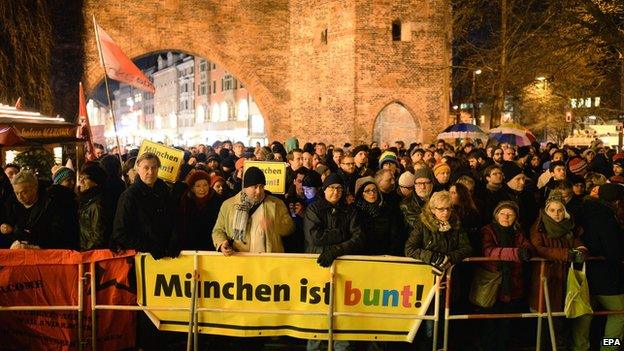
Anti-Pegida marchers in Munich held banners reading "Munich is colourful"
In Berlin, police said 5,000 counter-demonstrators blocked hundreds of Pegida supporters from marching along their planned route.
At the Dresden march the counter-demonstration attracted 3,000 people.
Record Rally
On Monday night the silent rally in Dresden drew in 25,000 people - a record number.
Marchers carried banners expressing solidarity with the French cartoonists, killed by Islamists in Paris.
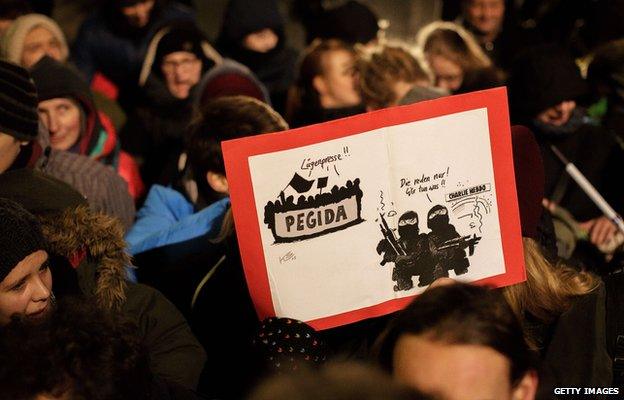
The anti-Pegida protests drew 7,000 in Dresden, 30,000 in Leipzig, 20,000 in Munich and 19,000 in Hanover.
Follow @BBCNewsbeat, external on Twitter and Radio1Newsbeat, external on YouTube